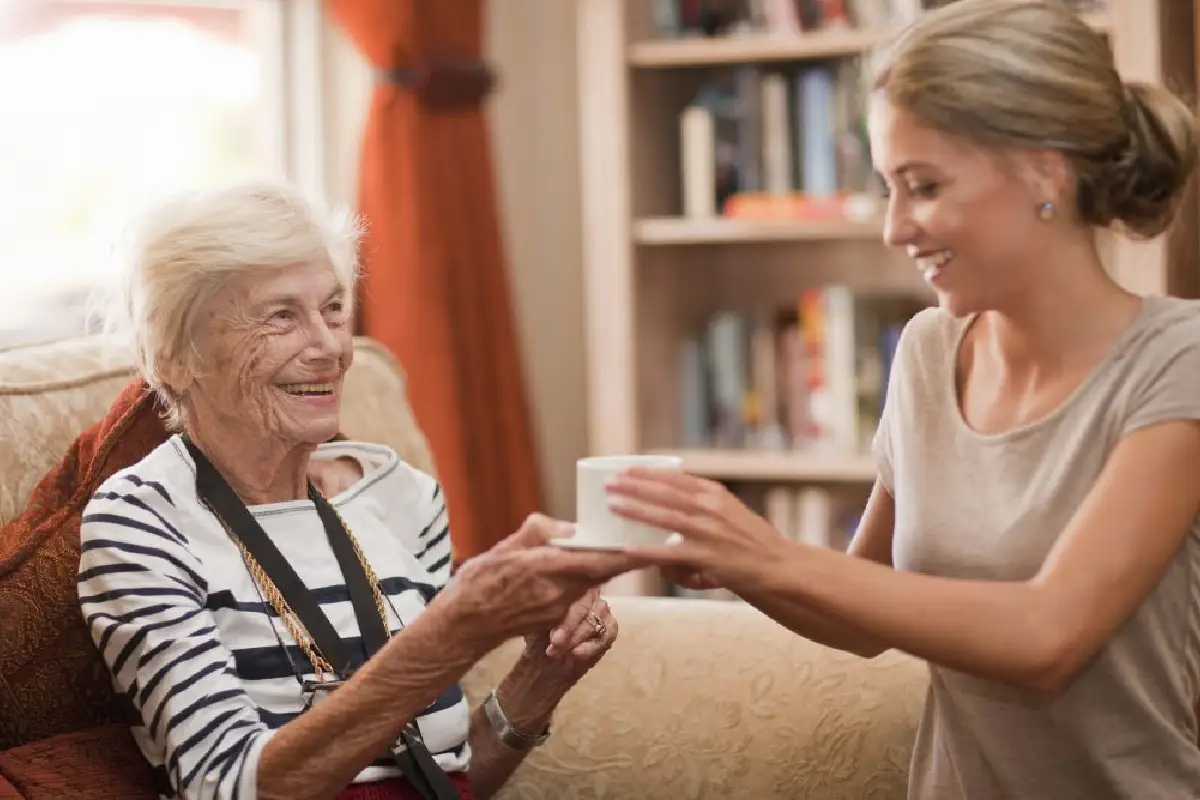Moving away from the house you live in and care for yourself in to go to a care home is a confronting thought for many people. Putting supports in place to allow seniors to stay in their homes for as long as possible is vital to continued good health. Staying in a familiar, comfortable space is good for mental health and cognitive ability. Depending on your loved one’s needs, there are various ways to support them to stay put and happy.
Table of Contents
Downsize
If your relative has lived in a large family home well into retirement, it may be time to consider downsizing. The upkeep of large houses can become overwhelming as we begin to slow down, meaning the grounds and buildings may become neglected. Should your relative struggle with looking after a large property, supporting them to find an appropriate smaller property removes that burden. A cozy bungalow or flat can still offer the space and freedom they’re used to at a fraction of the cost and upkeep.
Declutter
As mobility and balance decline getting about the house can become harder; decluttering allows spaces to be opened and become easier to move around. Support your relative to let go of items that are no longer needed and reorganize storage for things that stay. Old furniture can be sold or donated, as can clothes and books. In this way, they’ll bring joy to a new generation of people, and your person will benefit from fewer trip hazards and more space.
Medical Alert System
Medical alert systems are an ideal tool to promote seniors’ independence. As risks of falls and medical issues increase, users of these services can quickly call for help even if alone and immobile. Lifefone offers a range of medical alert systems to suit all budgets and requirements. They can be used at home in the shower, taken on outings, and works 24 hours a day so that users can always reach for help.
Lighting
Adequate lighting has been shown to help reduce the risk of and delay the worsening of dementia. Start by maximizing daylight by ensuring windows are clean and unobstructed, and lightbulbs are bright. Reorganizing the lighting in the house of someone with early-stage dementia can improve cognitive ability, delaying worsening symptoms. It can also reduce confusion as the disease progresses, for example, by removing large mirrors and dark rugs.
Bathroom Modifications
The bathroom is known for being the most dangerous room in the house, regardless of the occupants’ ages. Naturally, the threat becomes more significant as the occupants age and become less steady on their feet. You can make a range of modifications to the bathroom to counter this, such as installing a walk-in bath and toilet rails. Even small changes such as a bath seat in the shower or a nightlight for night visits make a significant difference.
Stairs And Steps
If your elderly relative can’t or won’t move from a house with internal stairs, consider installing a stairlift to make getting up and down stairs more manageable and safer. Similarly, ensuring any small steps around the house are in good condition stops them from becoming trip hazards. Small ramps can remove the potential to trip if they’re too hard to step up and down.
External Services
Using external services eases the pressure of day-to-day chores that can become hard for someone with limited mobility or vision. Consider paying for a cleaner to come in once or twice a week and do the chores your relative struggles with. Leaving the easy tasks allows them to maintain independence and control over their environment. Think about window washing and dog walking services, as well as meal deliveries to suit your relative’s needs.
Low Maintenance Garden
Gardening is wonderful for maintaining good mental health and lowering blood pressure, but it can become harder to do as joints get stiffer and mobility reduces. Creating a low-maintenance garden can allow the green-fingered enthusiast to get their fill without being problematic. Raised beds with wide edges for sitting on provide easy access to plants.
As we can see, there are plenty of ways to support elderly relatives to stay in their own homes. They may need to downsize and let go of some things. Still, otherwise, practical adaptions that are relatively non-invasive such as a medical alert system and bathroom adaptions, make a significant difference.

